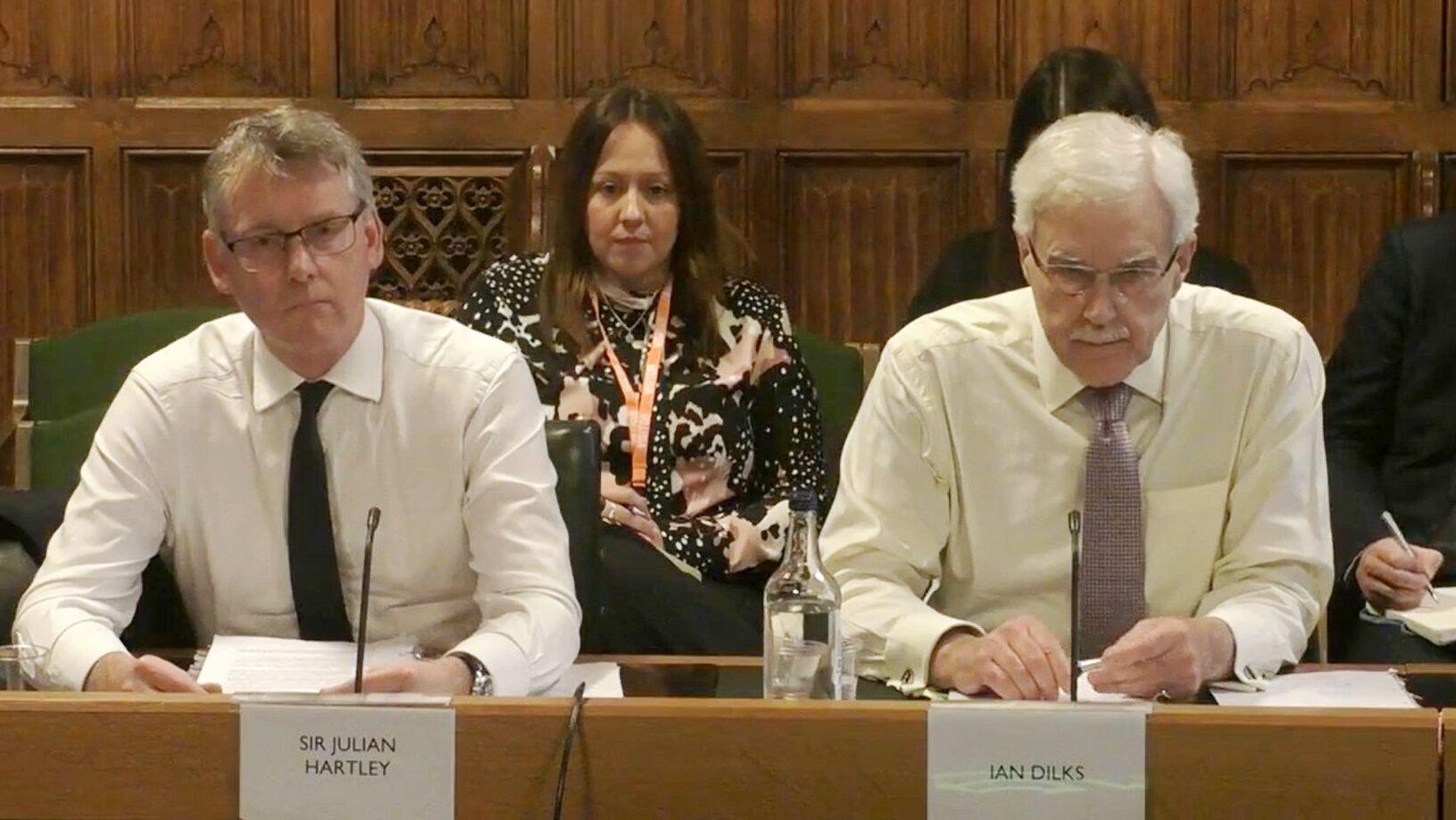You’re hired! Are apprentices the answer to the NHS’s workforce worries?
The government wants to attract thousands more staff into the NHS with the promise of earning while they’re learning through apprenticeships. But uncertainty over funding, teaching staff and local autonomy could undermine the plans before they get off the ground.

The NHS long-term workforce plan, published in June, set out the government’s ambition to train one in six clinical staff in England through apprenticeships within the next decade. It includes controversial plans to pilot a five-year medical doctor degree apprenticeship, to be delivered by Health Education England from September 2024.
Despite evidence that apprenticeships can boost employee retention, just 7% of NHS clinical staff are currently trained this way. Ministers hopes that expanding the schemes will help to fill spiralling vacancies in key clinical jobs.
There are numerous apprenticeships already available within healthcare – including schemes for midwives, nurses and allied health professionals, as well as healthcare leaders. They could play an important role in in securing the NHS’s future staffing needs, says Stacey Allen, director of corporate partnerships at Coventry’s Arden University, which runs a number of healthcare-related schemes.
“The NHS has specific challenges due to changing demographics, digitisation and the pace of change, which call for innovation, agility and organisational resilience so that organisations within health and care can thrive,” she says.
Although the apprenticeship route has become more popular with trusts in recent years, doubts remain about whether the government’s ambitions are realistic. Ministers have so far provided little clarity about how its plans will be delivered or funded, says Angelo Varetto, head of apprenticeships at Skills for Health.
And apprenticeships involve a lot of upfront costs for trusts, warns Caroline Waterfield, director of development and employment at NHS Employers. Some apprenticeships for registered staff, such as nurses and healthcare assistants, require trainees to spend more time on the education side of their training than other routes, which means employers need to find staff to cover the trainee’s work while they’re learning, Waterfield explains.
Pioneering apprenticeships in the Potteries
Since 2018, Staffordshire and Stoke on Trent ICS’s apprenticeship scheme has offered rotational healthcare apprenticeship placements across mental health, social care, primary care and elderly care services.
The scheme, which is now on its sixth cohort, is linked to the ICS’s outreach project, which helps people from disadvantaged communities to apply for apprenticeships and prepare for interviews.
So far, the scheme has led to 76 apprentices being appointed, with an 81% retention rate. This is high, says the ICS’s apprentice lead Adele Cooke, particularly as most apprentices haven’t worked in health or care before.
Stoke and Staffordshire’s apprentices work in at least three different settings over 14 months, with an 80/20 ratio between work placements and education. Exposure to different work environments is key to the programme’s success, Cooke says.
“It’s easy to apply for a job on a certain ward and decide after a couple of weeks that it’s not for you,” she says. “It could put you off completely, when it perhaps just wasn’t the right area.”
Cooke’s advice for ICSs and trusts looking to develop or expand their apprenticeship schemes is to focus on selecting the right candidates. This often means choosing people who need extra support and supervision. “Using a buddy or mentor system is a great way of identifying good leaders in the workforce,” she says.
“People can flourish when taking apprentices under their wing. It gives them more satisfaction, rather than pushing them to leave their current roles if they want to progress,” she adds.
Apprenticeships are currently funded through the levy scheme, which requires trusts to put aside 0.5% of their payroll costs to fund apprenticeships. But government rules means the levy can’t be used to fund this ‘backfill’, she explains. The government also needs to ensure there’s enough upfront central funding for trusts and further education institutions to put in the necessary infrastructure to employ and train people through apprenticeships, she adds.
With more placements to manage, supporting and supervising apprentices while they’re studying at university or college will be an increasingly pressing challenge, warns Varetto.
“Teaching will need to increase, but the only way to do this is by taking people out of the service to become lecturers, and to supervise and support students in their placements” he says. “It’s a Catch-22 when you already have massive staff shortages.”
Professional bodies have raised concerns that medical doctor degree apprenticeships could dilute professional standards and create a two-tier medical workforce. Apprentices will attend medical school – but it’s not clear how often.
The GMC says it supports the principles behind apprenticeships, but will need to ensure that the proposed programmes meet its standards. As of November 2023, it hasn’t approved any medical apprenticeship programmes and it isn’t monitoring any either.
“There are risks that [apprenticeship-trained] doctors would be treated unequally but it isn’t inevitable if the right leadership is in place to potentially manage it,” says Alex Baylis, assistant director of policy at The Kings Fund.
According to Varetto, the main difference between apprentices and those who go down the traditional educational route will be their bank balances. Apprentices may also enjoy higher job satisfaction, he adds, since apprenticeships schemes have much lower attrition rates compared to those who go through higher education.
But the government’s plans will only help to alleviate the NHS’s staffing shortages if the expansion of apprenticeships is driven by the workforce needs of Integrated Care Systems (ICS), rather than dictated from the centre by NHS England or ministers, warns Baylis.
“There’s potential to be locally responsive – although, I’m not sure there’s the capacity in ICSs to do this at a more strategic level across the system,” he says.
While many details have yet to be worked out, there’s at least fairly widespread agreement about the pitfalls to avoid and challenges to overcome if the government’s ambitious plans for apprenticeships are to be realised.
Learning compassionate leadership
Arden University in Coventry runs several apprenticeship schemes for NHS leaders, including a chartered manager degree apprenticeship in health and care, and a senior leadership apprenticeship in health and care.
All its apprenticeships, which are accredited by the Chartered Management Institute and developed in conjunction with the NHS Leadership Academy, offer non-standard entry routes to widen access and are focused on fostering compassionate leadership.
“We wanted this to be pervasive through all of our programmes,” says Stacey Allen, the ICS’s director of corporate partnerships. “As an outsider, it seems the NHS is traditionally perceived to have quite a hierarchical leadership style, but [now] it seems to be trying to create equality in care and compassionate leadership.”
At their regular group sessions, apprentices often discuss how they can become compassionate leaders when there are so many pressures on the NHS workforce. Allen says one way is to create work environments where staff feel safe to talking about their stresses, even if there’s nothing that can be done about them immediately.
“We’re seeing a need for empowered teams that can work collaboratively and create and embrace innovative ideas – but without compassionate, assertive leadership, you don’t always get that kind of high performance,” she says.
Related News
-

Regulating the managers: more questions than answers
The Labour government’s plans for regulating NHS managers are still shrouded in mystery, and the three options on the table each have their pros and cons. Rhys McKenzie weighs up the choices and gauges the views of MiP members on the best way forward.
-

The inspector falls: why the CQC needs a fresh start
After years of chaos, the Care Quality Commission urgently needs to rebuild trust and credibility with the public and the services it regulates. What needs to change and what are the priorities for new boss Sir Julian Hartley? Alison Moore reports.
-

Voice, value and vision: what analysts need from the NHS
Data analysts play a vital role in an NHS which is increasingly data-driven and focused on public health trends. But the NHS faces fierce competition for skilled analysts and many feel the health service fails to value them or fully use their talents. Alison Moore reports.